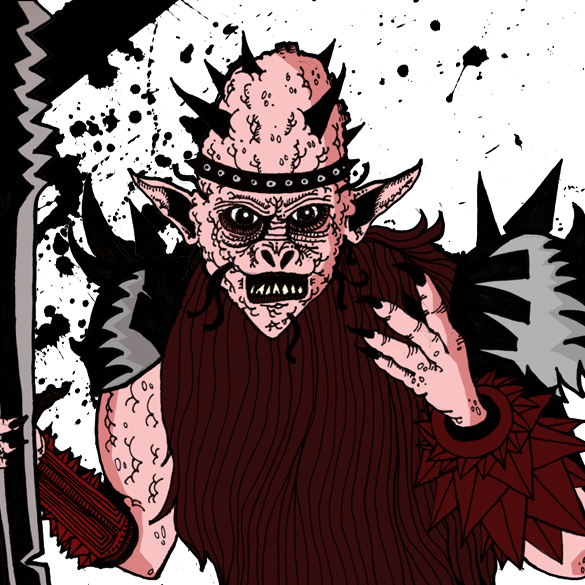It all started with one guy. I mean the rebellion. And he wasn’t even rebelling. But he was upset. Because of all the cameras and drones all over the city, the state, the country, the continent, the planet, his face showed up in the background of a news report that had nothing to do with him, but there his face was, Our Hero, stepping out from a strip club which happened to be across the street from a bank robbery. The bank robber was not Alphonso, who was, in fact, an accountant; rather smallish, with a thin mustache, a polite manner, and always dressed for business — this was the guy who started the rebellion — but Alphonso was clearly visible in the background coming from the very same strip joint that his wife had extracted a promise from him that he would never visit again; yet there he was, on the screen, none other than himself, Alphonso. So he was screwed. The row at home was worse than usual. His wife wasn’t exactly the forgiving type.
The next morning, a bright and sunny one, he took action. Greeting his neighbor, Franklin, on the front steps of their apartment house, where Franklin was furtively — and illegally — smoking, he popped open his umbrella and prepared to sally forth to work.
It was actually Franklin who understood the potential. He was the true rebel, trouble just waiting to happen. As he was fondly reminiscing about his father’s complaints at the ever-increasing numbers of eyes in the sky, Alphonso’s bumbershoot abruptly rose overhead like a profound, miniature, mushroom cloud, momentarily eclipsing the cameras from view.
“Saw you on TV, Alph,” Franklin commented, deliberately deadpan. He had heard the row and knew what it was about. They had been neighbors for years. He knew the routine, and occasionally commiserated with Alphonso over troubles with women.
“Not anymore you won’t,” retorted Alphonso with grim determination.
Franklin nodded approval with a sly grin. That was it, the revolution had begun. “Have a Good day, Alph,“ he said.
“You, too, Franklin,” replied Alphonso, who set off down the steps to march to work.
Safety! It was always about safety, and convenience, or so Franklin’s father had sarcastically maintained during lengthy tirades regarding the cameras, drones, and GPS implants (free from the government), but parents would neglect to have the implants removed as the child aged. They were just too convenient.
His father had made sure Franklin’s put out a defective signal so he couldn’t be tracked, in clear violation of the Registration and Location law that eventually made implants mandatory, but when scanned up close Franklin’s name popped up just like it was supposed to.
Franklin watched Alphonso march off, swallowed the tiny cigarette butt, went inside to grab his umbrella, then hiked to the place he could still anonymously post on popular websites; that he needed shade from the heat, with a picture of himself wearing a bandanna, carrying an umbrella, his index finger pointing up. Anonymous posting was, of course, illegal.
Others got the hint, it went viral, and that’s how the rebellion moved to the street. Alphonso kept going to the strip joint unconcerned by the rebellion — he wasn’t about to give up seeing Bambi, or Bridgette. They kept him sane. He wasn’t as straight-laced as he looked.
Within weeks, the eyes in the sky saw pedestrians everywhere as just feet and lower legs sticking out from under the edge of umbrellas, rain or shine. The authorities tried to hunt down Franklin but couldn’t find him, just like when he used to graffiti police cars because his faulty GPS made vandalism possible. The other kids had been envious.
A few months later, in winter, when umbrellas bloomed anyway, Alphonso found Franklin on the steps again, furtively and illegally smoking a cigarette under an umbrella.
“I notice lots more umbrellas nowadays,” he told Franklin. “You wouldn’t know anything about that, now would you?” he facetiously hinted. They hadn’t engaged in witty morning repartee in a long while. Franklin just grinned in response.
Alph walked to the bottom of the steps, and as if in afterthought, turned back to Franklin, and said, “By the way, your umbrella…; that bit of metalwork on the handle is very distinctive; might even be unique“ he noted, deadpan. Alphonso had recognized Franklin’s photo on the website immediately but told no one.
“Hmmmm….” was all Franklin could awkwardly reply, caught by surprise. Usually he got the better of the repartee.
“Have a good day, Franklin,” smirked Alph as he set off to work, pleased his gotcha was successful — he had endured many humorous jibes in regards to his rather portly wife, Consuelo. Let Franklin sweat for a bit.
Franklin swallowed his cigarette and headed straight for the umbrella market where they frequently traded umbrellas with passing strangers, and attached things to the undersides to fool the various censors. The authorities were perplexed by all the unmbellas, thinking it a peculiar fashion trend at first, but they started adding ground cams pointed up. However, unlike the aerial eyes, the ground cams could be touched. The maintenance robots couldn’t keep up with all the vandalism. Spontaneous outbreaks of freedom overcame draconian laws. Eventually the government fell — all because of one umbrella.
—-
Gary Siebel is an old guy existing in the watery wonderland of the great Pacific Northwest, partially deranged, and completely ridiculous in lifestyle, considering the weather. “It took me 32 years to graduate from the University of Washington, a fact not relevant to anything I can think of at the moment. Not sure why I even mentioned it, except perhaps to serve as padding. What the heck do you need to know, anyway?”



